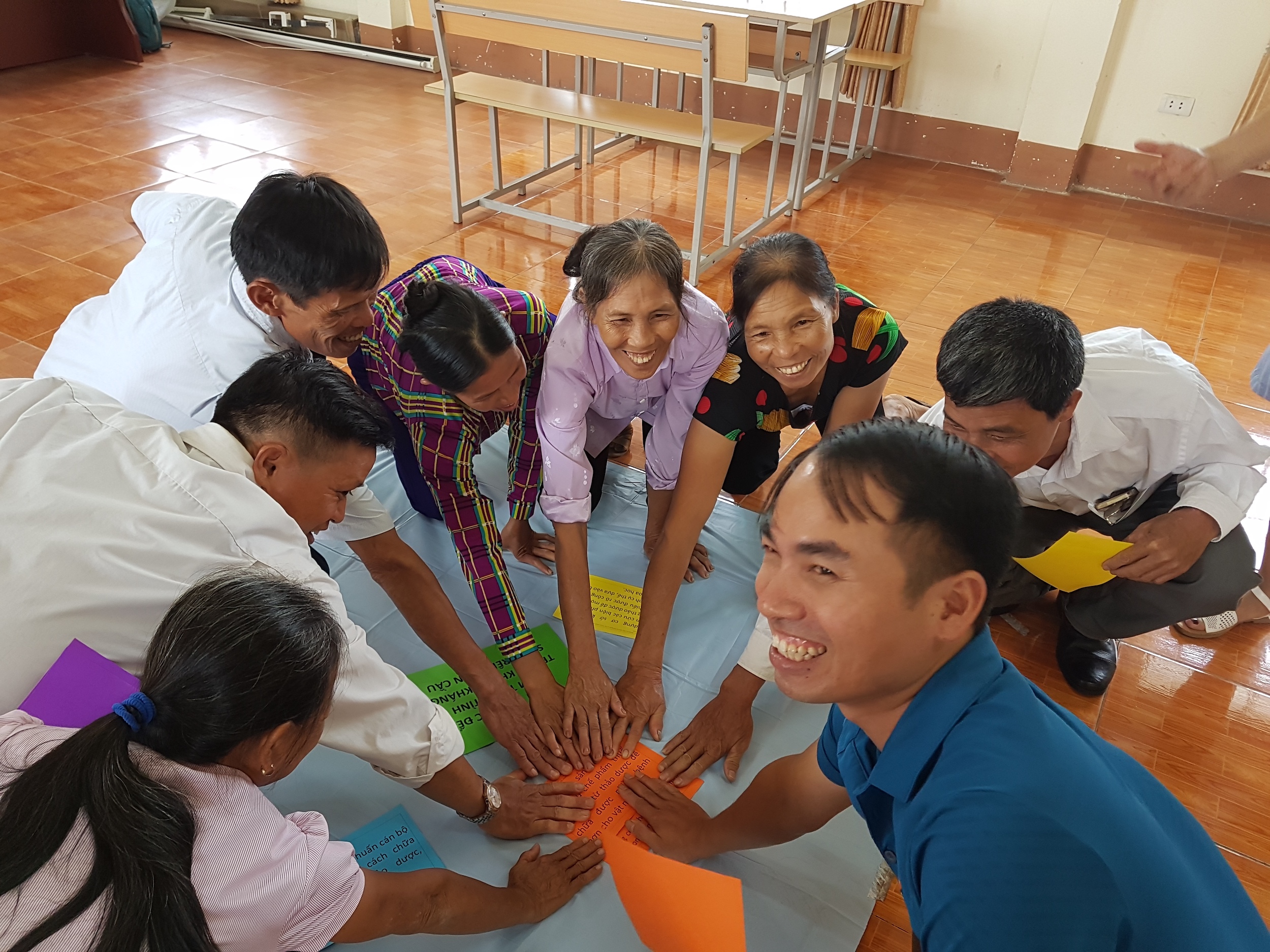Contact details:
Tarni L. Cooper (t.cooper@uq.edu.au) PhD fellow. International Livestock Research Institute, Vietnam.School of Veterinary Science, and Centre for Communication and Social Change, School of Communication and Arts, The University of Queensland, Australia.
Background
In response to the threat posed by antimicrobial resistance (AMR), global attention is increasingly focussed on antimicrobial stewardship (AMS). AMS involves the coordinated effort of all stakeholders to use antimicrobials appropriately, to reduce the development and spread of AMR. In some countries characterised by industrialised livestock systems, veterinary AMS has seen considerable success, largely attributed to greater regulation.
Countries dominated by smallholder systems are likely to be less responsive to such ‘top-down’ approaches. Vietnam has developed a National Action Plan on AMR and AMU reduction in livestock and aquaculture and is working to increase awareness of the problem. However, there remain significant challenges to achieving widespread AMS in farming communities. Effective AMS policy and action in Vietnam will need to be sensitive to the needs of farming communities.
Project overview
This research project aimed to build an understanding of how antimicrobials were used in the livelihood strategies of smallholder farmers and their animal health networks. The project followed an iterative, mixed-methods design and combined epidemiological and Communication for Development approaches. The first study, in two provinces, revealed complex livelihoods interacting with decisions around antimicrobial use. Based on these findings, cross-sectional and longitudinal surveys were conducted. The final stage involved stakeholder workshops interpreting data and co-constructing an understanding of the system in which AMS decisions were made. Finally, stakeholders came together, to identify leverage points for livelihood-sensitive intervention.
Main findings
Two important stakeholder groups were identified, farmers and animal health workers. There was no clear distinction between private and public health workers as government veterinarians were also involved in private enterprise. Women dominated sales of animal health products but had less access to training. Self-reported adherence to global AMS criteria was low in both groups, and this was triangulated with longitudinal data. While weaknesses in the system were apparent, there were also strengths, which were identified as promising leverage points for improved AMS. For example, certain traditional practices for treating gastrointestinal disease were consistent with AMS and will be actively encouraged.
Stakeholder groups reviewed data and gave the researchers new insights before developing lists of proposed interventions. Representatives of the groups then worked together to discuss the lists from their different perspectives and negotiated a single, livelihood-sensitive list. The final list of proposed actions has been presented to the government and other stakeholders. A follow-on research activity to support one of these actions, addressing the gender education gap, was completed in December 2018.
Conclusions
This iterative approach aided a more nuanced, multi-perspective understanding of local constraints and opportunities for AMS. Our research addresses the question of how we might support smallholder farmers and animal healthcare workers to improve AMS within their current livelihoods’ context.
Research impact
This research contributes to the global effort for greater antimicrobial stewardship (AMS). Beyond implications for the communities studied, the research yields a transferrable approach to contextualising antimicrobial practices in smallholder farming communities. Further, systems practice brings community stakeholders together in support of livelihood-sensitive policy and action for AMS. Concrete, community-developed recommendations for improving AMS are being considered and/or implemented.
Researchers
Tarni L. Cooper 1, 2, 3, R. Soares Magalhães1, E. van de Fliert2, D. Grace3, H Nguyen-Viet3, P. Pham-Duc5, P. Phan-Thi-Hong4, T. Pham Thi4, B. Nguyen-Thanh4, B. Bui-Thi4, N. Tran-Thi5, N. Nguyen Huu6, H. Nguyen Thi Thu6, N. Le Thi Hang7.
Institutions involved
- School of Veterinary Science, The University of Queensland, Australia.
- Centre for Communication and Social Change, School of Communication and Arts, The University of Queensland, Australia.
- International Livestock Research Institute, Vietnam.
- Faculty of Animal Science and Veterinary Medicine, Thai Nguyen University of Agriculture and Forestry, Vietnam.
- Centre for Public Health and Ecosystem Research, Hanoi University of Public Health, Hanoi, Vietnam.
- Faculty of Economics and Rural Development, Vietnam National University of Agriculture
- FocusGroupGo Vietnam.
Funding
Funded by the CGIAR Research Program on Agriculture for Nutrition and Health and the Australian Government Research Training Program.
Research Subject Area(s)
Antimicrobial stewardship (AMS), Systems Thinking, Sustainable livelihoods, Epidemiology, Communication for Development.
More information
*This study is an ongoing PhD research project developed by Tarni Cooper at ILRI Vietnam/ University of Queensland. More information will be available once the final results of the research have been published.
